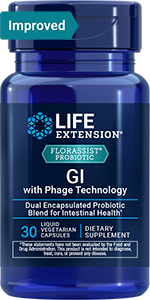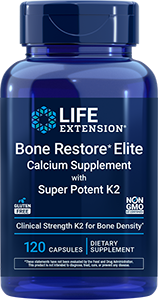
Newsletter
Newsletter
Fish Oil Lowers Heart Disease Risk for Diabetics

Having diabetes—or even prediabetes—doubles your risk of developing heart disease. However, a recent large study found a lower risk of coronary heart disease (CHD) among diabetics and prediabetics who consumed fish oil compared with nonusers. The findings were published on July 17, 2023, in Nutrients.1
The subjects—22,146 diabetics and 47,663 prediabetics enrolled in UK Biobank, a health and genetic information database derived from half a million people in the UK—were followed for a median of 11.6 years. Prediabetics who reported using fish oil had a 9% lower risk of developing CHD, while diabetics’ risk dropped by 13%.
“We identified an inverse relationship between fish oil use and CHD incidence, which was significantly mediated by serum C-reactive protein (CRP) levels in individuals with prediabetes and by very-low-density lipoprotein cholesterol (VLDL-C) in patients with diabetes,” authors Xiaohui Liu and colleagues reported. C-reactive protein is a marker of inflammation and very-low-density lipoprotein cholesterol is a risk factor for cardiovascular disease.
Prediabetes was defined as having a hemoglobin A1c (HbA1c), a marker of long-term glucose control, level of 5.7% to 6.4% and diabetes as an HbA1c level of 6.5% or higher, among other criteria.
Products
Apply What You’ve Learned: Fish Oil
- The omega-3 fatty acids EPA and DHA are found in oily fish such as anchovies, cod, herring, mackerel, salmon, sardines, trout and tuna.3
- Fish oil has been consumed for decades in the form of cod liver oil, a source of omega-3 polyunsaturated fatty acids, and vitamins A and D. Cod liver oil was often given to children due to the protective effect of its vitamin D content against rickets. However, its fishy taste has prevented many individuals from using it.2
- Encapsulated omega-3 fatty acids eicosapentaenoic acid (EPA) and docosahexaenoic acid (DHA) derived from fish oil can be prepared in a way that largely avoids the problem of objectionable taste, but these purified capsules do not contain vitamins A and D, which many people obtain from their multivitamin or elsewhere.
- Research findings indicate that omega-3 fatty acids support healthy blood vessel function, blood pressure, low-density lipoprotein (LDL) and very-low-density lipoprotein (VLDL) cholesterol levels, triglycerides, hemoglobin A1c (a marker of long-term glucose control), mood and brain function.4-7
References
- Liu X et al. Nutrients. 2023 Jul 17;15(14):3176.
- Miller WL et al. Horm Res Paediatr. 2022;95(6):579-592.
- American Heart Association editorial staff. American Heart Association. 2021 https://www.heart.org/en/healthy-living/healthy-eating/eat-smart/fats/fish-and-omega-3-fatty-acids
- Tousoulis D et al. Atherosclerosis. 2014 Jan;232(1):10-6.
- Miller PE et al. Am J Hypertens. 2014;27(7):885-96.
- Bae JH et al. Nutr Res. 2018 Feb;50:1-9.
- Nutrients. 2018 Aug 15;10(8):1094.
Featured Life Extension Magazine® Article
Reduce Stress While Sharpening Mental Focus
By Michael Downey
Stress-inducing situations are all around us, yet many people report an inability to manage stress. Unmanaged stress can challenge our ability to pay attention and increase the risk of anxiety, depression, insomnia, gastrointestinal complaints, sexual dysfunction, cardiovascular disease and other conditions.
Ashwagandha is a plant that has been used for more than 3,000 years in traditional Indian medicine. Modern medicine has discovered that ashwagandha helps inhibit the release of cortisol, a hormone that becomes elevated during stress reactions.
Another plant, spearmint, can help improve attention and alertness, which are negatively impacted by stress.
Read Full Article
What's Hot
Health Concern
Fish Oil Improves Body Composition, Strength, Performance in Older Individuals
The December 2022 issue of Age and Ageing published a secondary analysis of findings from a randomized, double-blind trial that found improvements in body composition, muscle strength and physical performance among older men and women who consumed fish oil compared to a placebo.

Atherosclerosis and Cardiovascular Disease
Comprehensive blood testing helps identify and target specific risk factors, targeting a treatment regimen that can be used to preserve and improve cardiovascular health.
Related Life Extension Magazine® Articles

Fish Oil and Heart Attack Risk
Meta-analyses find that fish oil is associated with reduced risks of cardiac-related events.

Fish Oil Prevents Heart Disease by Reducing Adhesion Molecules
Adhesion molecules are a contributing factor to atherosclerosis and heart disease. Fish oil can reduce adhesion molecules by up to 28%.
Highlight
AutoShip and Save!
Learn MoreLife Extension Magazine® Issue Now Online
A remarkable number of healthy-longevity findings have been published over the past 18 months.




